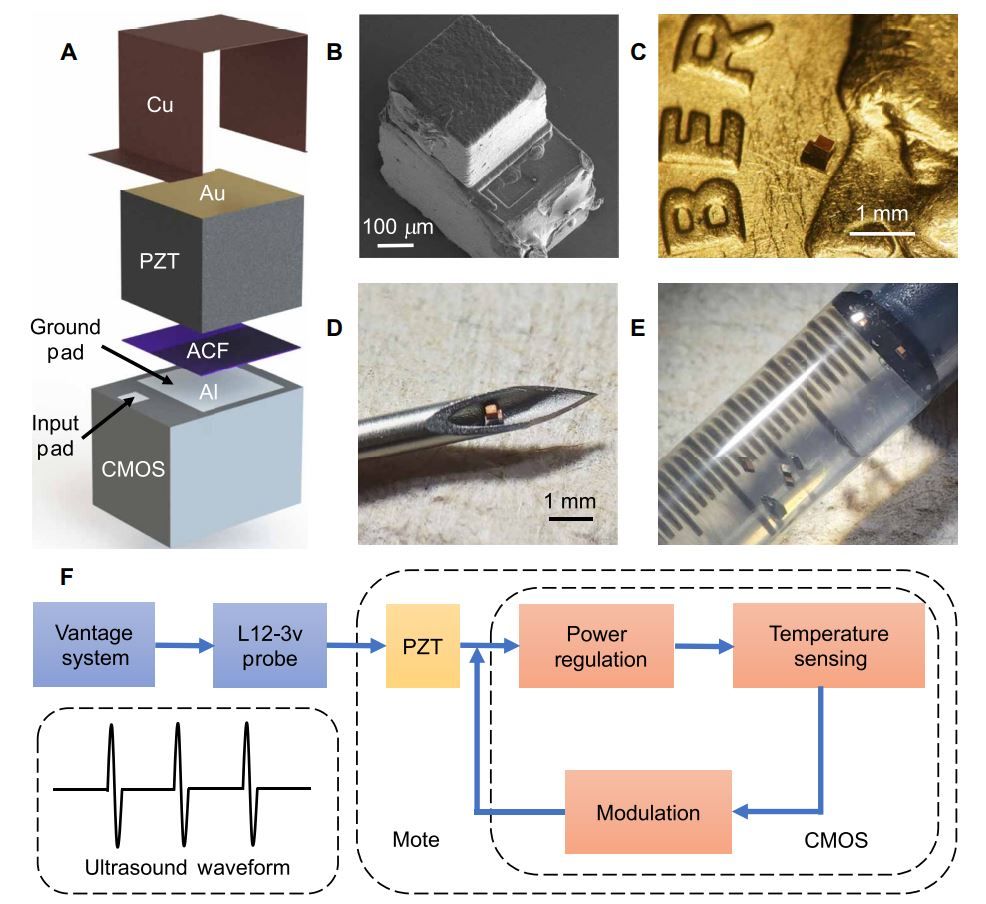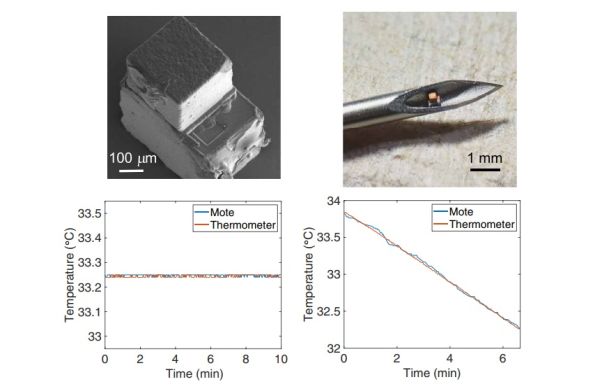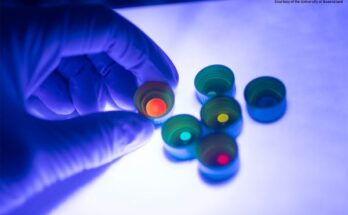In May 2021, a group of researchers including Chen Shi, led by Ken Shepard, Lau Family professor of electrical engineering and professor of biomedical engineering of Columbia University School of Engineering and Applied Science, reported they successfully built the world’s smallest single-chip system of a total size under 0.1 mm^3. The device is so small that it is only visible under a microscope. The device can be implanted using a hypodermic needle for in vivo a d in situ physiological monitoring. The device is made so tiny that it can be powered wirelessly via ultrasound imager that is also used for data communication. The device can act as a probe for real-time temperature monitoring including body temperature and temperature changes resulting from therapeutic application of ultrasound.

Compared to traditional wireless devices that use RF (Radio Frequency) for transmitting and receiving signals, the new device can be made much smaller because ultrasound has much shorter wavelengths at any given frequencies. The ultrasound technology as a new tool is used more and more in clinical practice. The new sub-0.1-mm3 and sub-1-nW mote device is continuing this trend of ultrasound technique. The team has utilized monolithic integration of a custom low-power temperature sensor chip manufactured in a 0.18-um bulk CMOS technology with a microscale PZT (lead zirconate titanate) piezoelectric transducer fabricated on top of the chip to achieve aggressive miniaturization and ultra-low-power.
Currently the new device has been trialed on live mice with up to seven mice got implanted with this new device via syringe injection. The goal of the team is to develop chips that can be directly injected into human body with a hypodermic needle and communicate with outside instruments via ultrasound to provide important body information, such as temperature, blood pressure, glucose and respiration for real-time diagnostic and therapeutic procedures.
Read more:
https://www.engineering.columbia.edu/press-releases/shepard-injectable-chips-monitor-body-processes



